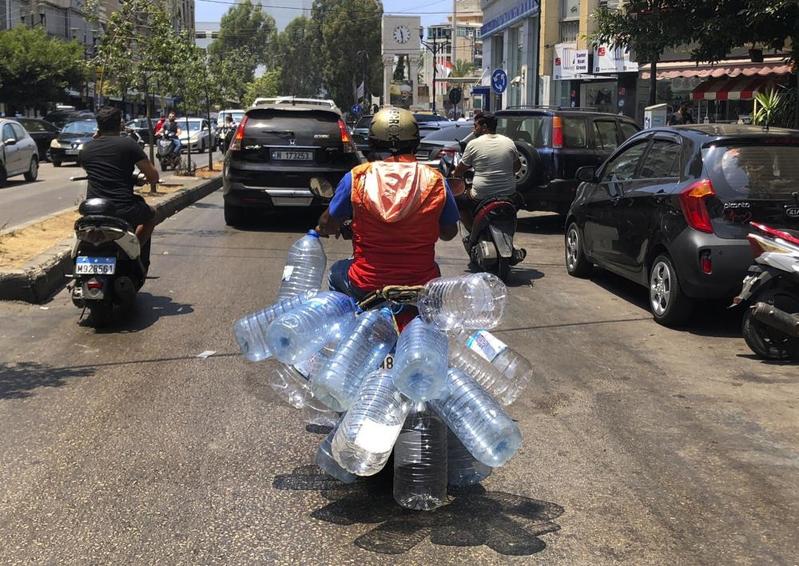 A man rides his scooter with empty water bottles to fill them with gasoline, in Beirut, Lebanon, June 23, 2021.
(JUSSEIN MALLA/AP)
A man rides his scooter with empty water bottles to fill them with gasoline, in Beirut, Lebanon, June 23, 2021.
(JUSSEIN MALLA/AP)
UNITED NATIONS - More than 4 million people, including 1 million refugees, are at immediate risk of losing access to safe water in Lebanon as the water supply systems are on the verge of collapse, warned the UN Children's Fund (UNICEF) on Friday.
With the rapidly escalating economic crisis, shortages of funding, fuel and supplies such as chlorine and spare parts, UNICEF estimates that most water pumping will gradually cease across the country in the next four to six weeks, said the fund in a press release.
READ MORE: Lebanon 'days away' from social explosion, PM Diab warns
If the public water supply system collapses, UNICEF estimates that water costs could skyrocket by 200 percent a month when securing water from alternative or private water suppliers
According to a UNICEF-supported assessment based on data collected by the country's four main public water utility companies in May and June 2021, more than 71 percent of people fall within highly critical and critical levels of vulnerability; and nearly 1.7 million people have access to only 35 liters of water a day, a drop of almost 80 percent against the national average of 165 liters before 2020, said UNICEF.
"The water sector is being squeezed to destruction by the current economic crisis in Lebanon, unable to function due to the dollarized maintenance costs, water loss caused by non-revenue water, the parallel collapse of the power grid and the threat of rising fuel costs," said Yukie Mokuo, the UNICEF Representative in Lebanon.
ALSO READ: Lebanese teachers flee as financial crisis builds
If the public water supply system collapses, UNICEF estimates that water costs could skyrocket by 200 percent a month when securing water from alternative or private water suppliers. For far too many of Lebanon's extremely vulnerable households, this cost will be too much to bear, it said.


